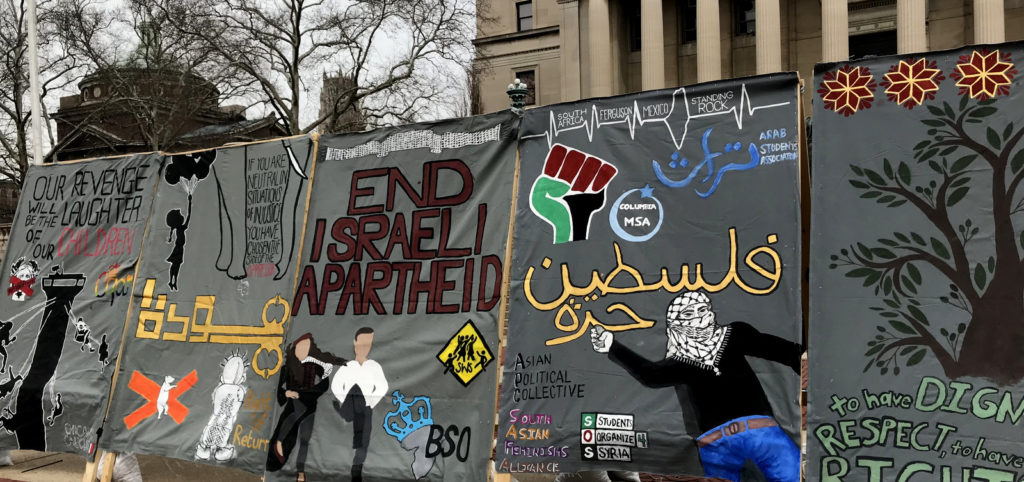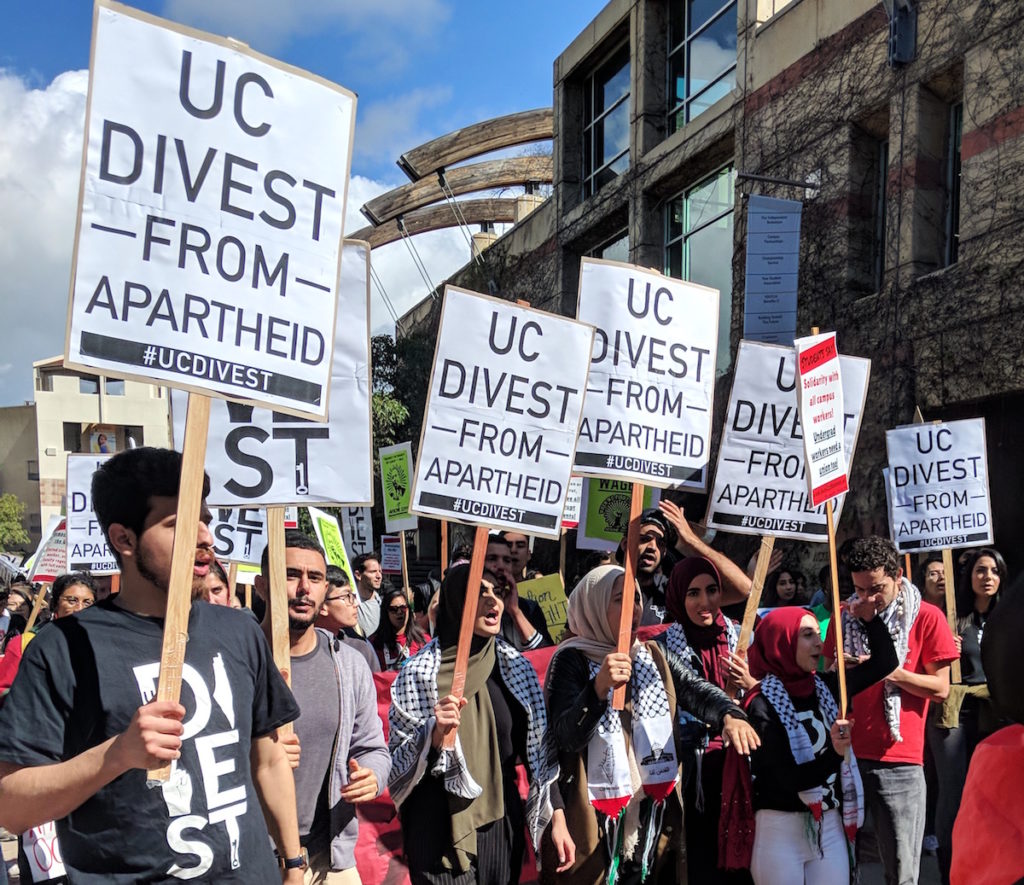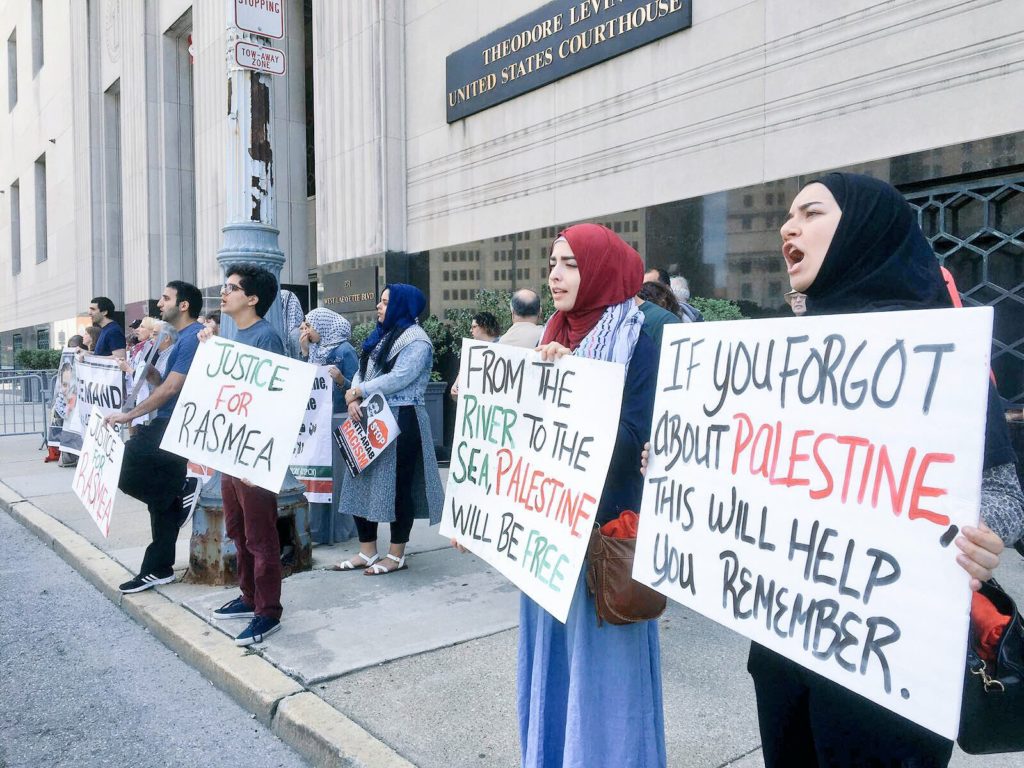Editor’s Note: Sign this petition to demand that UCLA adhere to its commitment to “mutual respect, equality and inclusion.”
National SJP Conference–a meeting to antagonize Jews on campus
There is little denying that anti-Semitism and anti-Zionism are on the rise, and a 2016 study by Brandeis University has a theory as to the cause: Students for Justice in Palestine (SJP). According to the study, “one of the strongest predictors of a perceived hostile environment toward Jews and Israel on campus, is the presence of an active (SJP) group.”
College campuses seem to be breeding grounds for anti-Zionism while the delegitimization of the state of Israel has infiltrated academia and social life at universities. One such example of this is the National Students for Justice in Palestine (NSJP) Conference that will be hosted on November 16th at UCLA.
This will be the eighth annual conference held by SJP, keeping in line with the same goals: to demonize the state of Israel and Zionist students on college campuses.

Though they claim that Zionism, “aims to destroy Palestinian existence and culture,” SJP is not working to improve the lives of Palestinians; their sole focus is to bully and harass Israel’s supporters., President of NYU’s SJP reiterates this goal and takes it one step further by stating that SJP aims to“…make being Zionist uncomfortable on campus.”
It is disheartening and concerning that such an event is to take place at a public university in the United States. Should this conference proceed at UCLA, the administration will prove to be complicit in the spread of anti-Zionism and perpetuating a culture that targets Zionist students.
A few miles away from our university is Tufts University, the host of the 2014 SJP Conference. 2014 Conference was titled Beyond Solidarity: Resisting Racism and Colonialism from the U.S. to Palestine. Since 2014, Tufts has been vocal and notoriously anti-Zionist, most notably with last year’s vote on a BDS resolution the night before Passover. By holding a vote the night before a major Jewish holiday, the student government was able to guarantee that the majority of Jewish students would not be able to attend the vote. They were right, and the resolution passed 17-6-8. Clearly, the idea of “colonization of Palestine” resonated with Tufts, as that is now a course they offer.

In fact, “building regional momentum” is one of the main goals of this conference, according to the SJP Conference website. SJP began presenting BDS resolutions in 2010, it was initially unsuccessful. In 2012, the student government at UC Irvine unanimously passed a resolution. Since then, SJP has worked tirelessly to pass divestment resolutions, as evident by the fact that almost every student government in the University of California school system has passed a BDS resolution. Consequently, the student governments at Stanford and Claremont passed BDS resolutions, making them the first private universities in California to do so.
Implementing and mobilizing beyond divestment” is another goal of the SJP Conference. Noting how they are not satisfied with simply passing BDS resolutions and are concerned with “post-divestment burnout”, the SJP Conference will work to find other ways to secure their hold on college campuses. To do so, student groups have allied to target students and Zionist groups. Such was the case at NYU when fifty-three student groups pledged to boycott Israeli products and institutions and called on then NYU administration to divest. Most concerning is that they specifically stated that their intention is to boycott TorahPac and Realize Israel, the pro-Israel student groups at NYU, emphasizing their true goal is to ostracize any student group that aligns with Israel.

In 2016, UCLA proved they wanted to ensure safety for all students by passing the “Statement of Principles against Intolerance” and explicitly mentioning anti-Semitism and anti-Zionism. UCLA has another chance hereto reiterate that anti-Semitism has no place at their university.
As a strong proponent of the First Amendment, I understand the concern. Restricting the right to free speech is not an option. The views of SJP are the polar opposite of mine, but they have a right to exist–if they can manage to do so without bullying students. However, they are not calling for peaceful discourse; they are trying to intimidate and belittle Zionist students. SJP’s rhetoric extends beyond hate speech; they seek to threaten pro-Israel students.
They are not calling for peaceful discourse… they seek to threaten pro-Israel students.
UCLA has a decision to make, and their civic responsibility should not be taken lightly. Canceling this conference would set the precedent that Zionist students are welcome, and SJP must reevaluate the way in which they behave as a group. Not canceling the conference would build the confidence of SJP and allow the organization to gain traction on the West Coast. Inaction would also assure there could be a ninth annual SJP conference next year. So how long is it until SJP is preying on my university?
Contributed by Brandeis University CAMERA Fellow Sarah Berkowitz. Originally published at The Jewish Advocate.

